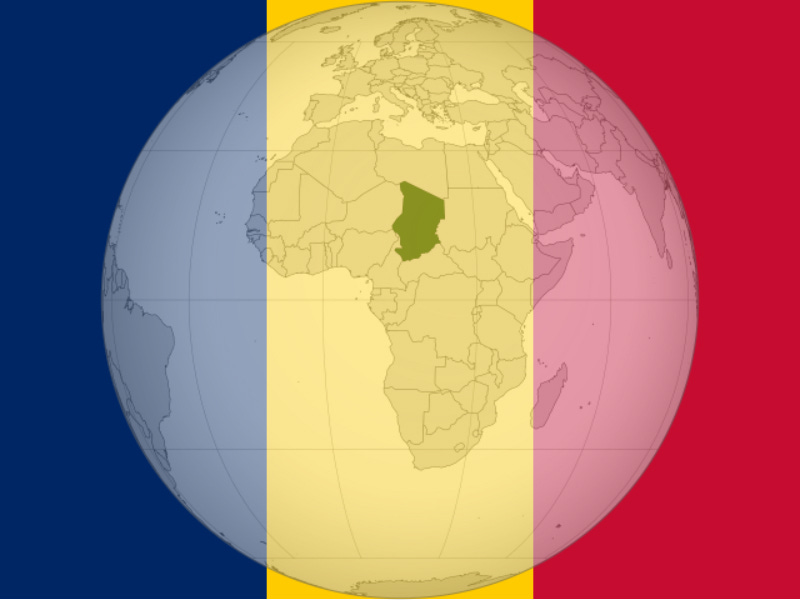Chad’s Humanitarian Crisis: Floods and Refugee Surge Demand Urgent Global Action
Commentary and Analysis by M. Nuri Shakoor, SRMP-C
An overview of Chad's compounded humanitarian challenges due to widespread flooding and the escalating Sudanese refugee crisis. Key data points include over 1.9 million flood-affected people, 576 deaths, and 681,944 Sudanese refugees. It offers insights on the critical interventions and future risks.

Chad stands at the nexus of a multifaceted humanitarian crisis, one that should be a matter of global urgency. Recent reports paint a grim picture: 1.9 million people affected by floods, over half a million Sudanese refugees surging into Chad’s borders, and catastrophic loss of livestock and farmland (OCHA)(UNHCR). But these numbers don’t merely represent a disaster—they reflect the cost of global inaction on climate change and regional instability.
The convergence of floods and refugee influx is no coincidence. Chad, often regarded as a peripheral player on the global stage, is in fact at the forefront of the devastating effects of climate change and the geopolitical fragility of its neighbors. This crisis was entirely predictable, and yet the international response has been tepid at best. Chad’s flooding situation was exacerbated by climate change, a fact underscored by the alarming rise in water levels of the Logone and Chari rivers, now surpassing historical records (OCHA) . The floods, displacing millions, could have been mitigated had there been long-term investments in environmental risk management.
At the same time, the conflict in Sudan has poured nearly 700,000 refugees into Chad, most of whom are women and children (UNHCR). These vulnerable populations, many of whom have fled unimaginable horrors, are now housed in under-resourced camps, with less than half receiving adequate support. This surge has put immense pressure on Chad, a country with an already fragile infrastructure. A staggering 84% gap in humanitarian funding (OCHA) leaves the government and its partners woefully unprepared to meet the escalating needs.
What we are witnessing is not just the result of environmental misfortune or regional conflict; it is a failing of the global humanitarian system. How can we expect Chad, a nation grappling with chronic underdevelopment, to weather these storms alone? The international community’s insufficient response risks transforming this crisis into a prolonged catastrophe. Humanitarian efforts are stretched thin, with only 47% of the required $1.125 billion raised (OCHA) (UNHCR) . This is not just a funding gap—it is a moral failure.
The anticipatory action framework, recently activated for the first time in Chad, offers a glimmer of hope (OCHA). This proactive approach to flood response, backed by $5 million from the UN’s Central Emergency Response Fund (CERF), is a bold and necessary step. But this funding is a drop in the ocean compared to the broader needs. We are seeing an alarming disconnect between the scope of the crisis and the scale of the international response.
As floodwaters continue to rise, and refugee camps swell beyond capacity, it is imperative that we confront the broader systemic failures at play. This is not just about Chad—it’s about how the world responds to crises exacerbated by climate change and conflict. Without significant and sustained global intervention, Chad’s humanitarian emergency will have ripple effects across the region. Food insecurity, deteriorating health services, and collapsing infrastructure are not just challenges for Chad; they are threats to regional stability and global security.
What is needed now is more than emergency relief—it is a fundamental rethinking of our global humanitarian priorities. Chad cannot continue to shoulder the burden of global inaction alone. The world must step up, and fast, before this crisis spirals out of control.
OCHA: Office for the Coordination of Humanitarian Affairs. (2024). Tchad - Bulletin Humanitaire Sept-Octobre 2024. Retrieved from ReliefWeb.
UNHCR: United Nations High Commissioner for Refugees. (2024). Mise à jour de l’urgence Soudanaise - Situation au 15 Octobre 2024. Retrieved from ReliefWeb.
ARAC’s Peacekeeper Insight. (2024, October). Chad’s humanitarian crisis: Floods and Sudanese refugees. Retrieved from Peacekeeper Insight. Peacekeeper Insight
Analytic Report for Premium Subscribers
Chad’s Humanitarian Crisis: Floods and Sudanese Refugee Influx Compounding a Dire Situation
Keep reading with a 7-day free trial
Subscribe to ARAC International | Flashpoints & Frameworks to keep reading this post and get 7 days of free access to the full post archives.



